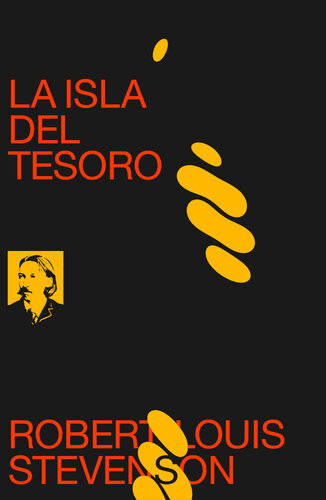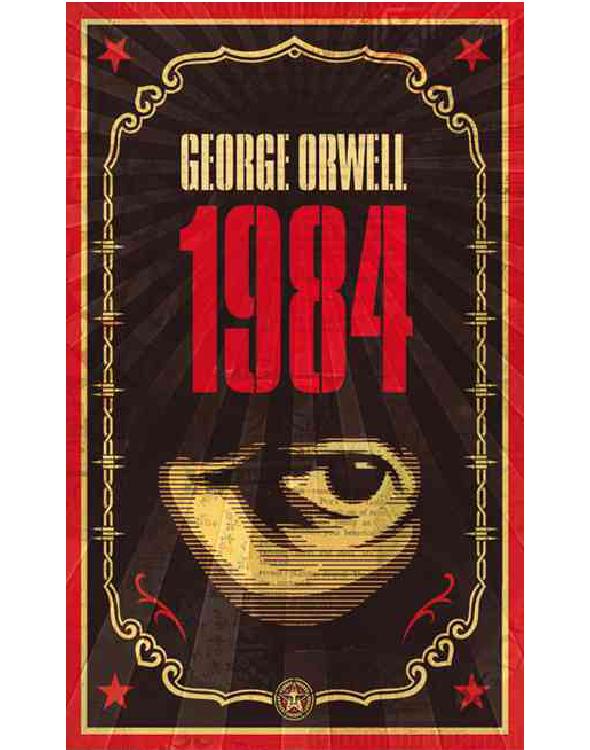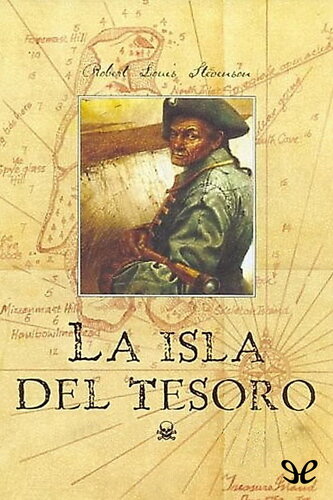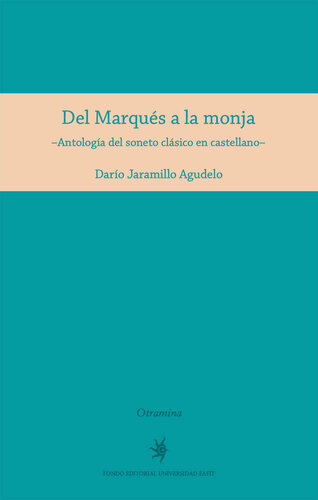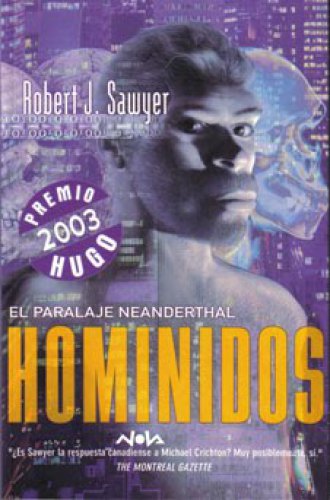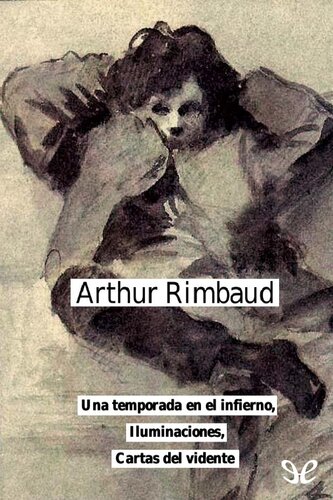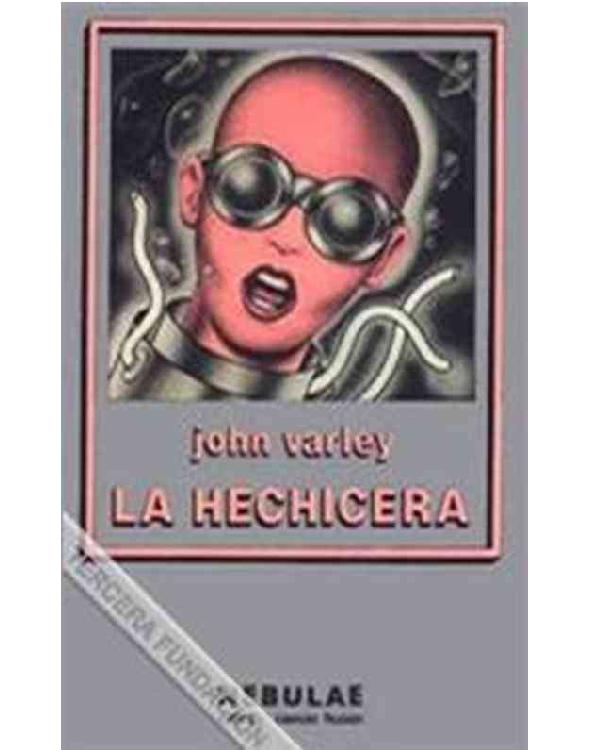oleebook.com
La invención del poder. Reyes, papas y el nacimiento de Occidente de Bruce Bueno de Mesquita
de Bruce Bueno de Mesquita - Género: Ficcion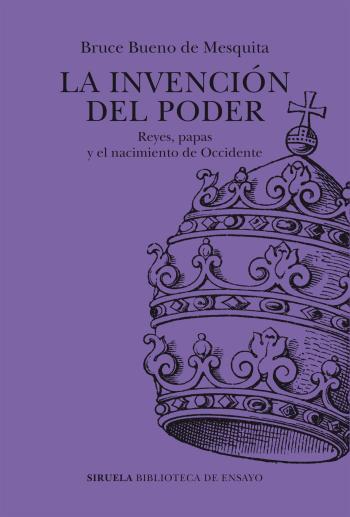
Sinopsis
La invención del poder echa por tierra el pensamiento convencional acerca de la cultura, la religión y la raza de Europa, y presenta una convincente y novedosa visión que resuelve uno de los grandes enigmas de la historia: ¿por qué Occidente se convirtió en la civilización más poderosa?
La excepcionalidad occidental la idea de que las civilizaciones europeas son más libres, más ricas y menos violentas es una poderosa noción política ampliamente extendida. Ha sido el origen de la paz y la prosperidad de diversas sociedades, pero también la causante de los estragos y la limpieza étnica en otras. En La invención del poder , Bruce Bueno de Mesquita recurre a sus conocimientos como especialista en gestión política y acuerdos de alto nivel para ofrecernos una nueva y revolucionaria teoría acerca de la excepcionalidad occidental: que un único acontecimiento del siglo XII cambió el curso de la historia europea y mundial. Al forjar un compromiso entre iglesias y naciones-Estado que, a todos los efectos, intercambiaban dinero por poder y poder por dinero, el Concordato de Worms, firmado en 1122, incentivó el crecimiento económico, facilitó la secularización y mejoró el destino de los ciudadanos. Todo ello propició que los países europeos siguieran el camino de la prosperidad. En los siglos siguientes, los que han mostrado una dinámica competitiva similar entre Iglesia y Estado han obtenido a la larga mejores resultados que aquellos que no.
La invención del poder es una obra de formidable erudición: visionaria, original y esencial, plantea a la vez la cuestión de quiénes somos y de dónde venimos, y responde a estas preguntas con fundamento y rotundidad.
Libros Recomendados - Relacionados
Reseñas Varias sobre este libro
This was a rather interesting book. A combination of Political science and history (with a smattering of economics) to explain the unique development of the "Western" World.
In the "Invention of Power", de Mesquita shows us some very fascinating research. His premise is that the Western World had some unique advantages that accrued through the conflict between Church and State. In this case, he specifically looks at how the early Chruch chose Bishops, primarily through popular selection. But, once the Church (the Catholic one, of course) acquired the Papal States, it became a more nepotistic and corrupt institution that began to compete with secular Kings and Emperors for power.
These conflicts led to the Concordats- signed between Pope Paschal II (Pope from 1099-1118) and Henry I, King of England, (reigned 1100-1135), and also Philip I, King of France, (reigned 1060-1108), which had to do with whom (secular or Pope) selected Bishops and, if the Bishopric were vacant, who would get the proceeds from the lands.
This conflict, de Mesquita shows, created the Western world we know today. Using a plethora of graphs and interesting statistical overviews, we are able to see if the areas covered by the Concordats performed better in terms of caloric intake to trade. We also see some fascinating information about the corruption of the Church.
A truly interesting premise. I enjoyed this book, more for the fascinating statistic correlations which shine an interesting light onto the Catholic Chruch's secular shenanigans. I also found it fascinating that, without a doubt, the Church prospers, in a spiritual power sense, when the laity is poor. It is against the structure of the Church to have a wealthy diocese since that attracts secular bishops or conflict with rulers.history political-science7 s Cindee Ketches159 2
Thank you to Net Galley and the publisher for the eARC in exchange for an honest review.
The title is somewhat of a misnomer. This book is about how power shifted, not about its invention. The author purports that the signing of the concordats in the 1100s shifted Western European power struggles between the church (popes) and secular nations (kings/emperors/etc) to create Western Exceptionalism the idea that Western European civilizations are more prosperous, freer, and less violent than other civilizations. It is interesting to read about the extent that these concordats seem to have helped create this development.
Bruce Bueno de Mesquita analyzes many factors and statistics to prove his point. He aims to disprove theories that are based on some variant of Europeans have a superior culture, Europeans are harder-working, smarter people, or Europes God and religions are superior.
Elsewhere, throughout most of history, the head of the government and the head of religion were the same person(s), or one was clearly subservient to the other. It is only in Europe, once the Holy Roman Empire was created by the pope to protect himself, the church and his papal states; that fierce political preeminence between the pope and Europes secular rulers was inevitable.
The authors arguments establish that the famous thesis of Max Weber, that Protestantism created northern Europes work ethic and prosperity, is backwards. The terms of the concordats incentivized a more successful work ethic in northern Europe which contributed to the rise of the Protestant Reformation.
The concordats changed the rules and gave secular rulers greater bargaining power in some cases. The wealth or poverty of the area then affected the secular versus religious leaning attitude of the chosen/accepted local bishop and this caused further differences in wealth, Power, etc. During the Commercial Revolution, greater wealth induced greater secularism and greater secularism induced greater wealth. It is unclear if secular bishops stimulated growth or if growth attracted secular bishops; but both directions show the spiral building.
The authors arguments seem to be well researched and are explained very well, but I find it difficult to believe that Western Exceptionalism could be caused by this one big bang event (or actually, the signing of three concordats). Unfortunately, I dont know enough about the era or most of the factors discussed to have an intelligent opinion agreeing with or contradicting the ideas presented. In my mind, it seems that there must have been other things going on that contributed; rarely can historic changes be drilled down to one causative factor. Regardless, it is true today that Europes wealthier, more democratic, healthier, and more lawful countries are those that were covered by the concordats and this treatise is definitely worth a read for anyone interested in the history of why Western civilizations rose to such power.
2 s Hadrian438 251
I'd first heard of de Mesquita's work in political science, where he has made many outstanding contributions. I will also start with the positives here: this book has an outstanding explanation of political coalitions, and of the importance of institutions compared to the power of a head of state.
But to sum up: the book's argument is about the origins of Western exceptionalism, and de Mesquita finds a major cause of this to be -- the 1122 Concordat of Worms, which regulated the appointment of bishops and abbots within the Holy Roman Empire.
I should add that I'm not in any sense a medievalist, but I am concerned about use of sources and methods. Is the best source of appointments really Wikipedia? Why are portraits cited as a metric of secularization? Why does de Mesquita cite so many books from well before 1950?
I can understand the motivation of an outsider coming in to challenge a field's preconceptions, but I might modestly suggest the problem is that the works of secondary scholarship cited are so old and probably separate from the more recent scholarship that this is not the best it could be. fiction history politics-political-science2 s Sage659 86
Bueno de Mesquita takes the novel approach of using game theory to trace the roots of "western exceptionalism" to the Concordats of London, Paris, and most importantly Worms (aka Verms) in 1122. I'm not great at game theory, and I had to read the book twice to really get his arguments, but he makes a strong case that the 187 year Concordat period was foundational in establishing separation of Church and State in Germany, England, France, and other regions covered (Netherlands, Belgium, some other small regions).
I had not known the tactics the papacy used to quash economic development in the papal states, not least using the Knights Templar banking empire to finance economic warfare against the Holy Roman Empire. That is some history that's going on my to-read list once I get out of antiquity and return to my medieval reading.
The factors used in analyzing the "Concordat game" include per capita income, life expectancy, quality of life, proximity to major trade routes, etc., as well as rating bishops' secularity vs papal loyalty, diocese proximity to the Vatican, and so forth. I am not sold on every factor. I found it odd that Bueno de Mesquita does not address what it means to be near a major trade route in any meaningful way. Where did these routes come from? Were they affected by tribalism or racism? Were they tolled? Were they restricted to people of particular ethnicities? What about ports? What about kingdom or papal import tariffs? I don't know if these issues mattered to the game theory test or not, because the author doesn't address them.
I'm also not entirely sure what constitutes the "Europe" of the book. Clearly, all of Western Europe counts, but Eastern Europe is not mentioned other than to acknowledge that the Eastern Orthodox Church exists. That's fine, but where exactly is the Orthodox split? What about Poland? Hungary? I realize Eastern Europe is not exactly contained in the Concordat region, but Bueno de Mesquita so often refers "Europe" as a whole, I am confused by what is meant.
I'm also leery of the author's conclusions tying papal dominance to European countries & their former (or continued) colonies who continue to have lower scores on quality of life indices, per capita income, etc., because imperialism happened and continues to happen. Political science is profoundly involved in studying the effects of medieval imperialism on the modern world, and erasing those effects from this study seems kind of sketchy. How does the Concordat Game stand up in light of overt or covert policies refusing investment in or penalizing trade with areas populated by out-groups? There is substance here for any number of articles tracing where the logic follows and where the logic fails against the tide of human prejudice.
TBF, I'd to see those articles. If you write one, link me.
At any rate, I'm fascinated by the idea that so-called "Western Exceptionalism" is rooted in 187 years of codified, incipient separation of Church and State, and despite everything that happened after 1309, including epic plague, famine, war, etc., the Concordat era may have had a lasting effect. The statistics here deal with an incredible amount of data to prove the connection, and it's certainly a more appealing idea than the racist/ethnocentric alternative. I just wonder what else was going on. What other factors existed in a pie chart of monarchical resistance to a corrupt medieval Church? Because while the Concordat game argument is persuasive, history is rarely down to just one thing. I want to see the complex of inputs that interreacted, how, and when.
ARC.arc-galley britain europe ...more Brett164
The Invention of Power is a fascinating empirical analysis of a hitherto unknown event and its impact across centuries of European history. While Bruce Bueno de Mesquita certainly advances a bold and sometimes overstated argument, his analysis is undeniably thorough and his conclusions inarguably relevant to modern political science.
many of my other favorite books about political development, Bueno de Mesquita sets out here to explain how Western exceptionalism was born and, furthermore, how variations between the living standards of European regions arose. Two things set this narrative apart from other books of the same genre: first, Bueno de Mesquita relies entirely on game theory and quantitative analysis, and second, he focuses on only a single event: the Concordat of Worms. Despite knowing a lot about European history, I had never heard of the Concordat before this book. It's almost impossible to refute Mesquita's assertion that it was a history-defining event, however. The legal institution of conflict between church and state created incentives to compete, grow wealthy, and expunge the stunting influence of religious rule that remained in place throughout Southern Europe; these, in turn, led to such events as the Avignon Papacy and Protestant Reformation, thereby setting Western and Northern Europe on its present trajectory. Backed up with convincing statistics and graphs, his argument is sufficiently strong that I certainly believe the Concordat(s) were influential in creating the modern West. Not only that, but I found his analysis most convincing when explaining the variations in wealth between places France/Germany/UK/Northern Italy and Southern Italy/Spain/Eastern Europe.
However, my major issue with this book was the extent to which Bueno de Mesquita emphasized his theory above any other existing literature on the topic of comparative political development. I believe in the Concordat's relevance, but what about the Church's altering of inheritance laws around the same period (as Francis Fukuyama suggests was the primary accelerant for the West in "The Origins of Political Order") or simple differences in climate and geography (which Bueno de Mesquita alludes to but doesn't examine deeply)? Despite the quality of the data, I find it hard to believe that this single, small event was the only decisive factor in the course of political history, but Bueno de Mesquita seems to suggest just such an unlihood. And though I am generally impressed by his data and analysis, some of his graphs rely on an admittedly tiny sample size. Beyond these qualms, I did find certain parts of the book to be a bit repetitive or patronizing, but not so much as to dissuade me from finishing it.
All in all, The Invention of Power is an irrefutably valuable contribution to the field of comparative political development. It demonstrates both that quantitative historical analysis (and game theory) can find real answers to many classic questions and that the Concordat of Worms was a singular event in world history. It does suffer from a bit of arrogance in the way its claims are stated, and it could be written a little better, but it nonetheless was an enjoyable and important read. I would recommend this book to anyone interested in this field or in authors Barrington Moore or Francis Fukuyama. Kumail Akbar274 38
Early in 2012 or 2013, I was recommended a book called The Black Swan by Nassim Nicholas Taleb, which basically fundamentally changed the way I used to think and evaluate not just books but very many ideas around me. Amongst the many brilliant takeaways from Talebs works is the idea of a narrative fallacy or our inability to see random events for what they are, we are somehow predisposed to tying a narrative around data points to make sense out of them. When taken too seriously, and without adequate rigor and caution, this is a recipe for disaster as we start associating not just correlations but also causalities in random data. One way to test this is to check ideas with boundary conditions, as is done in physics but not in, say empirical finance or economics. Another way to test the same is by asking yourself, what data if true, will render this entire construction false (and demonstrably a product of randomness).
The reason why I am ranting about Taleb is because reading this work set off all of my Talebian alarm bells. The author has an expertise in game theory in political science, and somehow decided to explain away all of Western civilization and its material and intellectual successes through *one* data point the Concordat of Worms, a series of agreements between the Pope and different secular rulers, which lead to a slow drag of economic and ultimately political power away from the church into secular hands.
That is it, that is the crux of the book. Somehow a political agreement between two competing power centers determined that Europeans would stumble upon the New World, that industrial and scientific revolutions would be stumbled upon, that the otherwise powerful eastern Oriental and Islamic empires would be savaged by infighting and attacks from central Asian hordes, that these same empires would by happenchance have at their helms powerbrokers who were unable or unwilling to import ideas and technologies in time, that wars in which the west was going to win or lose would not matter, and so on. The Concordat by the way was signed in 1122, this was before Genghiz Khan was born, before the Ottomans, during the Abbasids and before the Mughals.
Bruce Bueno de Mesquita may know a thing or two about the very specific history of these accords, and the players and characters associated with it, or those who came just afterwards. But he seems to be laughably ignorant of all of the history that had yet to happen, and changing any single variable, any single war outcome which occurred over the next 500 or so years would completely trash his hypothesis. He would do well to write shorter screeds or twitter threads instead of a 400-page book which could be reduced to a single sentence and then laughed away.
Rating 2 of 5, for the effort the author made in making the narrative readable for the layperson, otherwise a totally garbage read, not worth anyone's time.
christianity don-t-bother-reading europe ...more Clay Kallam935 25
This is a one-idea essay expanded into a 292-page book. The idea is interesting -- that a series of agreements signed in the 12th century between the Pope and secular rulers fostered economic development in many parts of Europe -- and it does make sense. Bruce Bueno de Mesquita, though, takes this 900-year-old butterfly's wing and tries to keep it flapping into the modern era, and it's simply untenable.
Did the Concordat of Worms actually encourage some secular rulers to make certain dioceses richer? de Mesquita has plenty of data points to show that economic increase in specific areas went hand-in-hand with the Concordat's ruling that secular powers could keep revenue from empty bishoprics until an agreeable candidate was proposed by the Pope. Prior to the Concordat (and two previous ones in England and France), the Pope kept the revenue but there were always controversies about who got to choose bishops, and there was a push to set up an agreed-upon procedure.
The Concordat, however, was a definite loser for the Pope, as now the richer the diocese, the more money the secular ruler could make while delaying the appointment of the new bishop. Therefore, de Mesquita's logic goes, European secular rulers were uniquely incentivized to generate more income than rulers elsewhere.
This last bit is tantalizing, but de Mesquita never explores comparative economics with non-European empires, and instead settles for showing that the further dioceses were from Rome, and the richer they were in 1100, the greater their ensuing economic growth.
de Mesquita, however, with the enthusiasm of someone with a big idea, turns the Concordat into a hammer that then pounds in every economic nail in the following centuries, when in truth there were so many other factors involved that this one agreement was simply overwhelmed by events.
Still, de Mesquita's exercise was both interesting and worthwhile, though the "book" should have been 50 pages long instead of 292 and certainly isn't worth $30 -- even in the richest of dioceses.
history1 Kishore Krishna19 2
The question of why the West grew vs the rest of the world has been explained in a variety of ways by historians. The author takes a game-theory based approach combined with interesting data to explore this question. The Pope back in the twelfth century concluded agreements with the kings of France, England and the Holy Roman Emperor on how new bishops and other clergy would be appointed to the various sees in these kingdoms. After these agreements were made, vacant dioceses revenue were transferred to the kings treasury which was a big change. The author demonstrates that the dioceses where the kings got their choices approved had much higher economic growth - these dioceses tended to be wealthier and hence the kings interest in getting their preferences (bishops whose first loyalty is to the king) approved. It was not in the Popes interest to drag out appointments in these vacancies given the losses in papal revenue.
The game played by the king vs pope in fulfilling the vacancies had a variety of consequences that led to the growth of democracy and structured competition in the West. In turn, this led to economic prosperity much earlier (13th-14th centuries) vs the renaissance/ reformation. The author demonstrates all of these through data.
The churchs interest in suppressing growth in order to maintain control is an interesting insight even looking at contemporary issues in places India. In addition, the current popes actions to increase the number of cardinals who can select his successor is also an aspect of this game - the author covers this from a historical perspective. This is well worth reading, although you will want to skip a few pages every now and then to escape the unnecessary repetition/ rhetoric.
Neal FandekAuthor 7 books4
This is a serious book for serious people: how western exceptionalism grew out of the conflict between the church and the monarchies of Europe, especially northern and western Europe. I know, when you hear the phrase western exceptionalism it sets off PC alarm bells, but theres no doubt about it. The parts of Europe that were more secular and further from Rome had greater economic development and more representative government than those closer, and the church did everything it could to prevent economic development. It all has to do with the 1122 Concordat of Worms, which sounds excruciatingly boring, and in many pages it is! But the author makes a very convincing case for this struggle between church and monarchy as the foundation of the west as we know it.
The graphs and charts are fascinating. All this being said, I found myself skipping over certain sections. This book demands great concentration and offers great rewards and insights: for example, that the Catholic Churchs insistence on priestly celibacy has very little to do with the Bible, and is really about the church keeping a sees income. That parliamentary assemblies are more ly in countries they were already wealthy, already secular. The same conclusion about war. You get the idea. So we should be very worried about the return in America to fascism/monarchy, and to religion, which by its very nature is anthetical to democracy. Khetha26 1 follower
This is a fascinating read that bridges political science with historical insights. Central to the book is de Mesquita's selectorate theory, a compelling framework for understanding the dynamics of political power and decision-making. His analysis illuminates how the Concordat of Worms and the random allocation of bishoprics, have long-standing impacts on development outcomes.The book's real strength lies in its empirical approach. The book supports its ideas with quantitative evidence, comparing various territories to demonstrate the influence of historical and political factors on their developmental paths. This blend of historical narrative with rigorous data analysis makes 'The Invention of Power' an essential read for those interested in the interplay of history, politics, and their lasting effects on our world. Ron Nurmi454 4
Bueno de Mesquita attempts to answer the question of how and when did the West become the leading civilization. He develops the idea that 1107 Concordats between the Pope & England, and France & the Pope along with the Concordat of Worms in 1122 laid the groundwork. By Western exceptionalism, he includes prosperity, religious tolerance, representative government, and growth of science & innovation. He then uses evidence to prove his thesis.
An innovative idea that presents a new vision of world history. It is well worth it to read and think about this book. Chris Miller433
Wow! This book was an entertaining but challenging read. The author is a political scientist who has taken an in-depth look at the 'rise of the west' and links it to two concordats between the Holy Roman Empire and the Roman Catholic Church. He has done research at an almost micro-analytical level and supports his work with valid game theory. It is challenging to make our way through the minutia, history, numbers that he uses to defend his theory, but well worth the effort. 2022 history political ...more Erin McMahon259 4
I d the use of game theory to examine popes, kings, and their decisions. It's a fascinating read.
I didn't the assumption of western superiority. Bueno de Mesquita didn't take his comparisons for financial prosperity beyond Europe so he can't make the claim of western superiority. It needed to be rephrased to indicate what he actually meant. Natalie68 20
DNF 48%. Is this guy okay??? Hes SO obsessed with the Concordant of Worms. And Im kind of interested in his thesis, but the book so obviously couldve been 1/3 of the length. Someone get this man an editor Alice26
Exceptionally dry. I was hoping for more history rather than explanations of charts and tables, considering that I was listening to the audiobook. I should have realized that a political scientist would write a different kind of history book than a historian. Masayuki Arai654 4
many DID ! Good historical causal inference :) Bob Blanchard24
This is a very academic treatise on the history of European power and the contest between the church and secular rulers for supremacy. Interesting at the start but became very repetitive. Wallace Mckenzie90 4
Would have been enhanced if the details could have been summarized into some charts and timelines. Interesting read. y48 33
Its fine? This could have been a research article instead of a whole ass book??? history-nonfic Sage659 86
Bueno de Mesquita takes the novel approach of using game theory to trace the roots of "western exceptionalism" to the Concordats of London, Paris, and most importantly Worms (aka Verms) in 1122. I'm not great at game theory, and I had to read the book twice to really get his arguments, but he makes a strong case that the 187 year Concordat period was foundational in establishing separation of Church and State in Germany, England, France, and other regions covered (Netherlands, Belgium, some other small regions).
I had not known the tactics the papacy used to quash economic development in the papal states, not least using the Knights Templar banking empire to finance economic warfare against the Holy Roman Empire. That is some history that's going on my to-read list once I get out of antiquity and return to my medieval reading.
The factors used in analyzing the "Concordat game" include per capita income, life expectancy, quality of life, proximity to major trade routes, etc., as well as rating bishops' secularity vs papal loyalty, diocese proximity to the Vatican, and so forth. I am not sold on every factor. I found it odd that Bueno de Mesquita does not address what it means to be near a major trade route in any meaningful way. Where did these routes come from? Were they affected by tribalism or racism? Were they tolled? Were they restricted to people of particular ethnicities? What about ports? What about kingdom or papal import tariffs? I don't know if these issues mattered to the game theory test or not, because the author doesn't address them.
I'm also not entirely sure what constitutes the "Europe" of the book. Clearly, all of Western Europe counts, but Eastern Europe is not mentioned other than to acknowledge that the Eastern Orthodox Church exists. That's fine, but where exactly is the Orthodox split? What about Poland? Hungary? I realize Eastern Europe is not exactly contained in the Concordat region, but Bueno de Mesquita so often refers "Europe" as a whole, I am confused by what is meant.
I'm also leery of the author's conclusions tying papal dominance to European countries & their former (or continued) colonies who continue to have lower scores on quality of life indices, per capita income, etc., because imperialism happened and continues to happen. Political science is profoundly involved in studying the effects of medieval imperialism on the modern world, and erasing those effects from this study seems kind of sketchy. How does the Concordat Game stand up in light of overt or covert policies refusing investment in or penalizing trade with areas populated by out-groups? There is substance here for any number of articles tracing where the logic follows and where the logic fails against the tide of human prejudice.
TBF, I'd to see those articles. If you write one, link me.
At any rate, I'm fascinated by the idea that so-called "Western Exceptionalism" is rooted in 187 years of codified, incipient separation of Church and State, and despite everything that happened after 1309, including epic plague, famine, war, etc., the Concordat era may have had a lasting effect. The statistics here deal with an incredible amount of data to prove the connection, and it's certainly a more appealing idea than the racist/ethnocentric alternative. I just wonder what else was going on. What other factors existed in a pie chart of monarchical resistance to a corrupt medieval Church? Because while the Concordat game argument is persuasive, history is rarely down to just one thing. I want to see the complex of inputs that interreacted, how, and when.
ARC. Stephanie75 1 follower
Autor del comentario:
=================================



